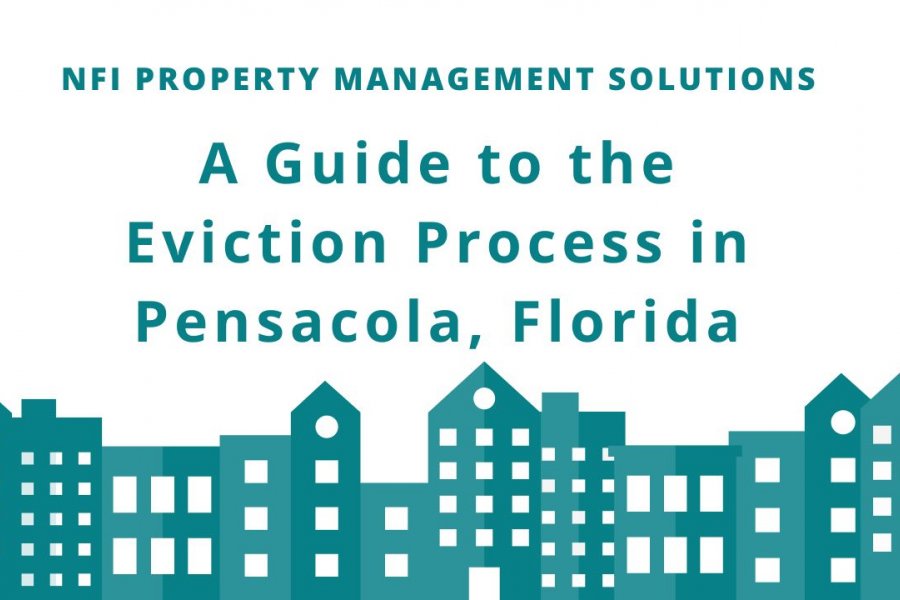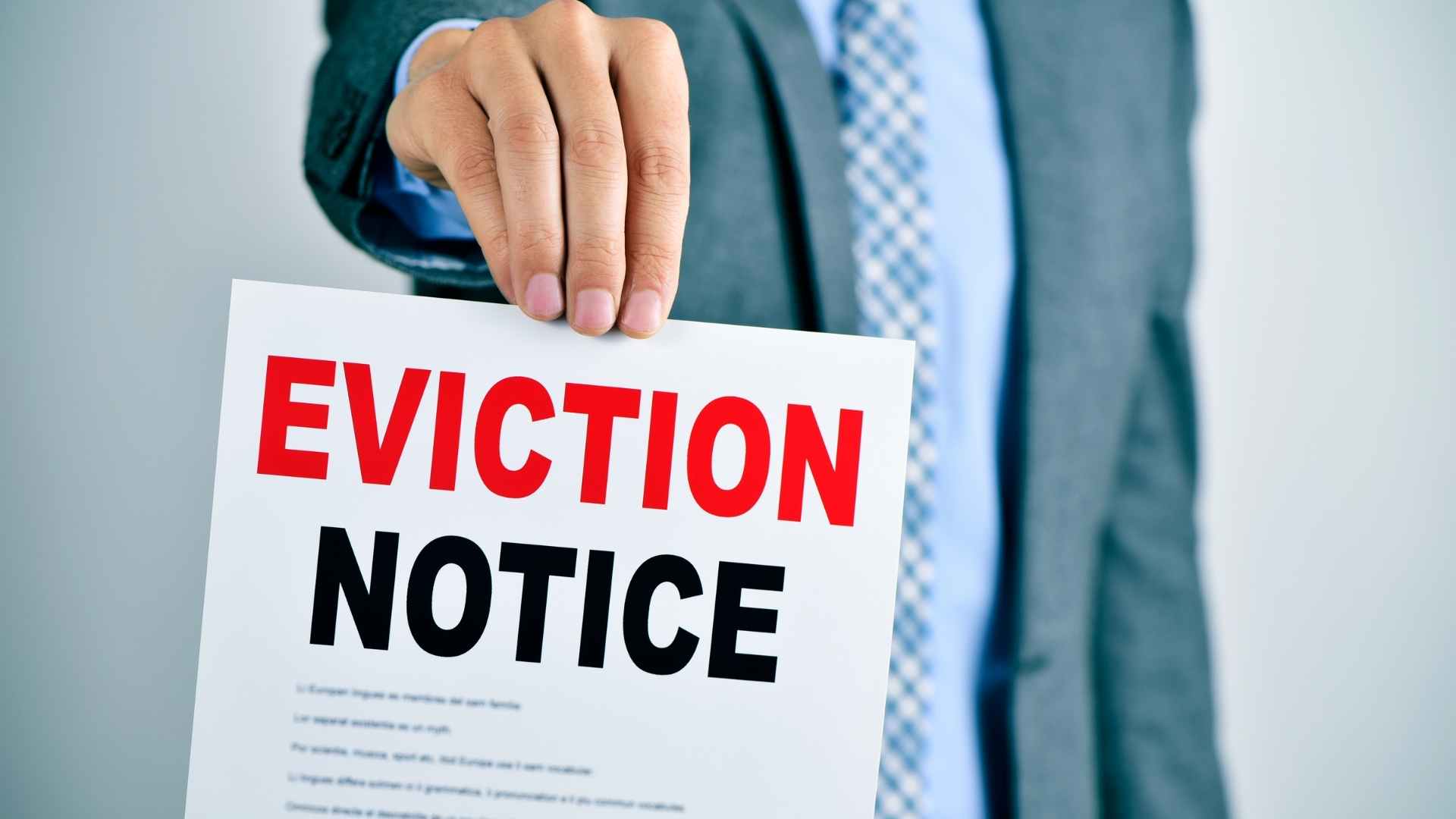
Tenants in Florida have certain obligations under the lease agreement, like paying rent in a timely manner and caring for their rental. If the tenant does not honor such obligations, the landlord can terminate their lease agreement and legally require the tenant to vacate the property.
Evictions in Florida, just like anywhere else in the country, must abide by the law. As a landlord, you can't try to evict your tenant by removing their belongings from the property or shutting down their utilities on the property. These are forms of “self-help” tactics to remove a tenant from the premises or rental property, and they're illegal for landlords under Florida landlord-tenant law.
To successfully evict a tenant, landlords need to follow the proper judicial procedure in the state, starting with serving a valid eviction notice. If a landlord doesn't, they might, at best, receive a formal notice, and at worst, be obligated to pay legal fees, filing fees, suffer legal repercussions, and/or attend a legal hearing. Be careful to make any Florida eviction lawsuits legal.
We also suggest considering a landlord's legal costs whenever moving forward with the process. As they can be costly, we suggest a landlord or landlords carefully consider all their options before beginning the process from a property.
Typically, the Florida eviction process takes anywhere between two and three weeks from start to finish. That said, it can also take a landlord longer to evict a tenant depending on the exact reason for complaint and whether the tenant resists being ordered to vacate the property or leased premises or not.
Here is everything landlords need to know about the legal property eviction procedure in Florida.
1. Have Cause for an Eviction
In order to evict a tenant sucessfully in Florida, landlords need to have a cause for an eviction complaint. The following are the legal grounds to evict a tenant and start a Florida eviction lawsuit:
- The tenant does not pay rent on time or in full.
- The tenant failed to vacate the rental unit after the written rental agreement has expired or after you serve the tenant written notice
- The tenant commits a rental agreement violation of the written agreement
Each of these grounds has a specific eviction process in Florida that landlords must follow.
2. Written Notice of Eviction
The eviction process begins in Florida when the lease agreement is terminated. A property owner does this by serving the tenant with a written notice.

Property owners must deliver a proper notice to their tenant to vacate the premises and terminate the lease in one of three ways. One, by hand delivering a proper notice to the tenant, by leaving a copy of the written notice on the front door or any other conspicuous area, or by filing a mailed copy to the tenant. Following these steps ensures landlords can evict tenants legally and in compliance with state laws.
There are different notices for a Florida landlord to choose from depending on the violation the tenant has committed. They are as follows:
Nonpayment of Rent
For non-payment of rent, Florida landlords must serve the tenants with a 3 Day notice period to Pay Rent or Quit. If a tenant makes a full payment of the entire rent amount within 3 days of the notice period, then you, as the landlord, must stop further eviction proceedings against them. However, if they don’t begin making a payment towards rent and don’t leave the rental unit, the landlord can move forward with their Florida eviction case.
In Florida, rent becomes due at the start of every pay period and becomes late a day after its due date. The only exception to this is if the lease states otherwise. Florida landlords can begin the eviction procedure immediately after the rent becomes late by serving the tenant with termination notices for non-payment.
Refusal to Leave Once the Lease Ends
For tenants who refuse to leave after their tenancy is up, the landlord must serve them a 15-Day Notice to Quit. The same notice also applies to a tenant living on your property without a lease. If the 15 days, excluding legal holidays, end and the tenant is still living on the rental property, the landlord can move forward and file an eviction lawsuit against them in order to evict them.

Lease Violation
For tenants who violate a term of the lease, a landlord must serve them either a Seven Day Notice to Cure or a 7-Day Notice to Quit. The former notice is meant for curable violations to the tenancy, whereas the latter notice is meant for incurable violations. Either way, a landlord might end up in county court to proceed with an eviction.
Examples of curable violations include parking in an unauthorized area, keeping an unauthorized pet, or failing to maintain a certain level of cleanliness.
The 7-Day Notice to Cure will give the tenant a maximum of 7 days to fix the violation or else risk going to court and getting evicted from the rental unit. In this case, full possession of the rental will return to the landlord once the tenant vacates the property.
Incurable lease violation include illegal activity and excessive property damage. The 7-Day Notice gives the tenant only one option, to leave within 7 days. If they don’t leave on their own, you can file an eviction lawsuit.
3. Summons & Complaint
If the tenant doesn’t respond to the eviction notice, the landlord can go ahead and file a complaint in a relevant legal jurisdiction. As the landlord, you need to remember to include the following details on the complaint:
- Both you and your tenant’s names
- The address of the rental property
- The cause of the eviction
- The date of serving the notice
After notarization by the county clerk, the two documents will be forwarded to the county sheriff or any other process server for onward delivery to the tenant. Generally speaking, it can take approximately 5 days from the moment the court issues the summons to when the tenant is served.

After being served with the summons and complaint, the tenant might choose to contest their removal. In Florida, the response must be done in writing and filed with the court’s clerk within 5 days.
In attempt to stop legal proceedings, tenant eviction defenses in court might include:
- The eviction process was based on discriminatory reasons in violation of the Fair Housing Act.
- The landlord tried to evict the tenant through “self-help” eviction tactics, such as removing their belongings or locking them out.
- The landlord continued with the eviction process even though the tenant fixed their violation.
- The eviction was in retaliation to the tenant exercising any of their rights during their tenancy.
- The tenant didn’t violate the lease agreement during their tenancy as the landlord alleged.
- The eviction notice contains substantial errors.
If any of these defenses are found to be true, a judge may dismiss your eviction lawsuit.
4. Court Hearing
If the tenant doesn’t contest, the landlord can move forward and obtain a Judgment for Possession. But if they do contest your, there will be a hearing and the court will decide based on the evidence produced.

If the tenant fails to appear for the hearing, the court will issue a default judgment in favor of the landlord.
But whether through a default judgment or a successful ruling, the landlord will be required to obtain a Writ of Possession. This is the tenant’s final notice to leave. A writ of possession gives a tenant a maximum of 24 hours to leave or else get removed by the sheriff.
Bottom Line: The Eviction Process in Florida
As a landlord, you need to understand the Florida eviction laws as well as landlord-tenant laws, the state's security deposit laws, and other lease-related policies. If you need help understanding Florida law, consider reaching out to a trusted property manager from a property management company!
NFI Property Management Solutions has over 30 years of experience in the industry. Get in touch with our team of property managers now to learn about how we can help you reduce stress and maximize your income.
Disclaimer: This blog isn’t a substitute for expert legal advice. Also, laws change, and this post might not be updated at the time of your reading. If you have any legal questions or concerns please reach out to a licensed attorney.